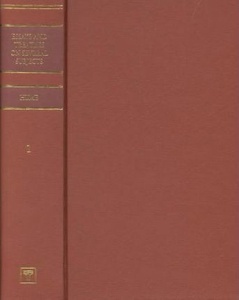Essays and Treatises

Editorial Bloomsbury Academic
Fecha de edición marzo 2009
Idioma inglés
EAN 9781855069350
1130 páginas
Libro
Dimensiones 138 mm x 216 mm
Resumen del libro
David Hume (1711-76) is the grand intellectual figure of the Scottish Enlightenment. Ironically, what is now considered his magnum opus, the ill-received three-volume "A Treatise of Human Nature" (1739-40), was rejected by Hume himself by 1751. Subsequently, when Hume first compiled his "Essays and Treatises on Several Subjects" two years later, he excluded the "Treatise" and considered this new collection of essays to be his complete philosophical writings. Hume revised the "Essays and Treatises" some ten times in various editions, adding, modifying and deleting material. This 1777 edition incorporates his final changes which he made quite literally on his deathbed, fully aware that this edition would be the last to involve his input. As such it is considered the definitive edition of Hume's philosophical writings and should be read alongside the first "definitive" edition of the "Treatise". The contents of this 1777 edition contains among its 43 essays a new one, "Of the Origin of Government".
Volume 2, which includes the longer and more notable essays such as "An Enquiry Concerning Human Understanding", is prefixed with an advertisement in which Hume announces his wish "that the following pieces may alone be regarded as containing his philosophical sentiments and principles". Hume scholar James Fieser has written a new introduction that puts the work into its intellectual and historical context, and outlines its publication history and contemporary reception. With the text reproduced actual size, in its first complete reprinting since the original publication, this facsimile edition should be welcomed by Hume and Scottish Enlightenment scholars everywhere.
Biografía del autor
(1925-2010) Profesor emérito de Ciencias Políticas en la Universidad de Georgia. Se doctoró en la Universidad de Chicago donde coincidió con Leo Strauss, quien influyó profundamente en su pensamiento e investigación. Fue profesor en el Davidson College (1962-1963) y en la Universidad Furman (1963-1967), antes de trasladarse a la Universidad de Georgia, donde enseñó desde 1967 hasta su jubilación en 2003. Entre sus obras destaca Hayek's The Constitution of Liberty .








